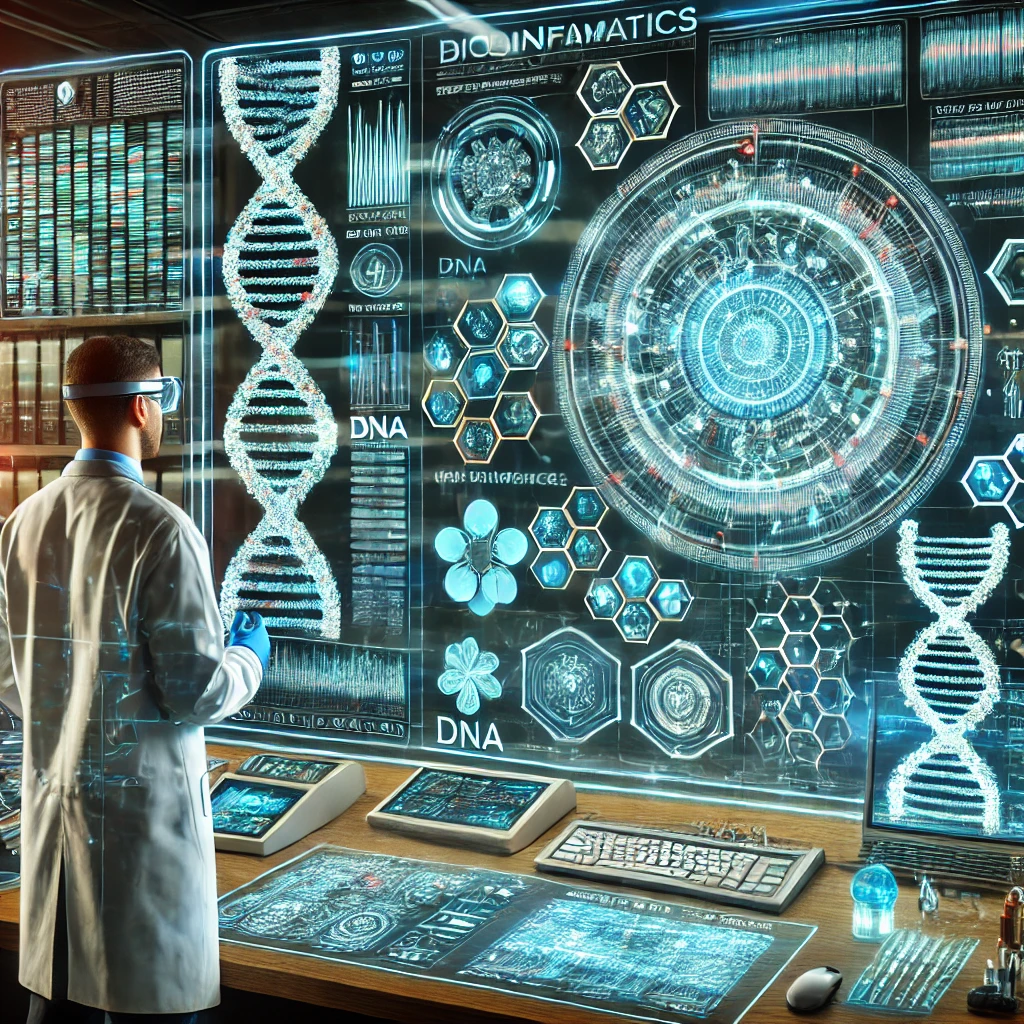
Bioinformatics: Revolutionizing Healthcare with Data-Driven Insights
In the rapidly evolving world of technology, bioinformatics is emerging as one of the most transformative fields. It’s where biology meets technology, leveraging computational tools to make sense of vast biological data. From genomic research to drug discovery, bioinformatics is revolutionizing healthcare and offering solutions that were once beyond imagination.
In this blog, we’ll explore the basics of bioinformatics, its key applications, and how it is shaping the future of medicine.
What is Bioinformatics?
Bioinformatics is the interdisciplinary science that applies computational methods and software tools to understand biological data. It primarily involves the collection, analysis, and interpretation of data generated from biological studies, particularly genomic and proteomic research. The rise of technologies like next-generation sequencing (NGS) and the vast amount of data they generate have made bioinformatics indispensable in modern biology and medicine.
The Key Applications of Bioinformatics
Bioinformatics plays a critical role in various fields, from healthcare to agriculture. Here are some of its most impactful applications:
1. Genomic Research and Personalized Medicine
One of the most well-known applications of bioinformatics is in genomics. By analyzing DNA sequences, scientists can understand the genetic makeup of organisms, including humans. This has far-reaching implications for personalized medicine, where treatments are tailored to an individual's genetic profile. For instance, bioinformatics tools are used to identify mutations that may cause diseases like cancer, allowing for targeted therapies.
2. Drug Discovery
Traditional drug discovery methods are time-consuming and costly. With bioinformatics, pharmaceutical companies can accelerate the process. By using algorithms to analyze biological data, researchers can identify potential drug targets faster. This reduces the time taken to develop drugs and allows for the discovery of more effective treatments.
3. Proteomics
While genomics deals with DNA, proteomics focuses on proteins—the building blocks of life. Bioinformatics tools help in understanding the structure and function of proteins. This is vital for disease research, as many diseases are caused by misfolded or dysfunctional proteins.
4. Agricultural Improvements
Bioinformatics isn’t limited to healthcare. It’s also transforming agriculture by helping scientists develop crops that are more resistant to diseases and climate change. By studying plant genomes, bioinformaticians can identify genes responsible for traits like drought resistance or faster growth, thus improving food security.
How Bioinformatics is Revolutionizing Healthcare
Bioinformatics is not just about collecting data—it’s about making sense of it to drive real-world applications. Here's how it is changing the healthcare industry:
1. Precision Medicine
One of the most exciting areas in bioinformatics is precision medicine. Instead of a one-size-fits-all approach, bioinformatics allows doctors to consider a patient’s unique genetic makeup when prescribing treatments. This not only improves the efficacy of the treatment but also reduces side effects.
2. Cancer Research
Cancer is a disease of the genome, and bioinformatics has been instrumental in cancer research. By analyzing tumor DNA, scientists can understand how cancer progresses and identify potential therapeutic targets. This leads to the development of more effective drugs and treatment protocols.
3. Understanding Infectious Diseases
Bioinformatics has played a pivotal role in understanding infectious diseases like COVID-19. By analyzing the genetic sequences of viruses, researchers can track mutations, understand how they spread, and develop vaccines faster. This was evident during the rapid development of COVID-19 vaccines.
4. Genetic Testing and Early Diagnosis
Bioinformatics enables more accurate and affordable genetic tests. These tests help in the early detection of diseases like Alzheimer’s or certain types of cancer, increasing the chances of successful treatment.
Challenges in Bioinformatics
Despite its immense potential, bioinformatics faces several challenges:
-
Data Overload: The sheer volume of biological data being generated is overwhelming. Managing, storing, and analyzing this data requires significant computational resources.
-
Data Privacy: With so much personal genetic information being collected, ensuring data privacy is a major concern. There is a need for strict regulations to protect individuals' data from misuse.
-
Interdisciplinary Knowledge: Bioinformatics requires knowledge of both biology and computer science, which makes it a complex field. Finding professionals with expertise in both areas is often challenging.
The Future of Bioinformatics
The future of bioinformatics is incredibly promising. As technology advances, we can expect even more revolutionary developments. With AI and machine learning being integrated into bioinformatics, data analysis will become more efficient, leading to faster discoveries.
Additionally, as genetic data becomes more accessible, personalized medicine will become the norm. Soon, treatments tailored to an individual's genome will be available for a wide range of diseases, from cancer to diabetes.
Conclusion
Bioinformatics is transforming the way we approach biology and healthcare. With its ability to analyze vast datasets, it provides critical insights into everything from drug discovery to disease prevention. As the field continues to evolve, we can expect even more innovations that will shape the future of medicine and improve our lives. Bioinformatics is not just a buzzword—it’s the future of healthcare.
If you're interested in learning more about bioinformatics or how it can impact your business, feel free to reach out to NetXil. We specialize in harnessing technology to drive innovation in industries like healthcare, agriculture, and more.
FAQs About Bioinformatics
1. What is bioinformatics used for?
Bioinformatics is used to analyze and interpret vast amounts of biological data, especially in genomics, proteomics, drug discovery, and personalized medicine.
2. How does bioinformatics help in drug discovery?
Bioinformatics helps researchers analyze biological data to identify potential drug targets, accelerating the drug discovery process and making it more efficient.
3. What is the role of bioinformatics in genomics?
In genomics, bioinformatics is used to sequence DNA, analyze genetic variations, and understand the genetic basis of diseases.
4. Why is bioinformatics important in healthcare?
Bioinformatics is crucial in healthcare as it enables personalized medicine, improves drug discovery, and helps in understanding diseases at a genetic level.
5. What are the challenges in bioinformatics?
The main challenges in bioinformatics include managing large volumes of data, ensuring data privacy, and bridging the knowledge gap between biology and computer science.
